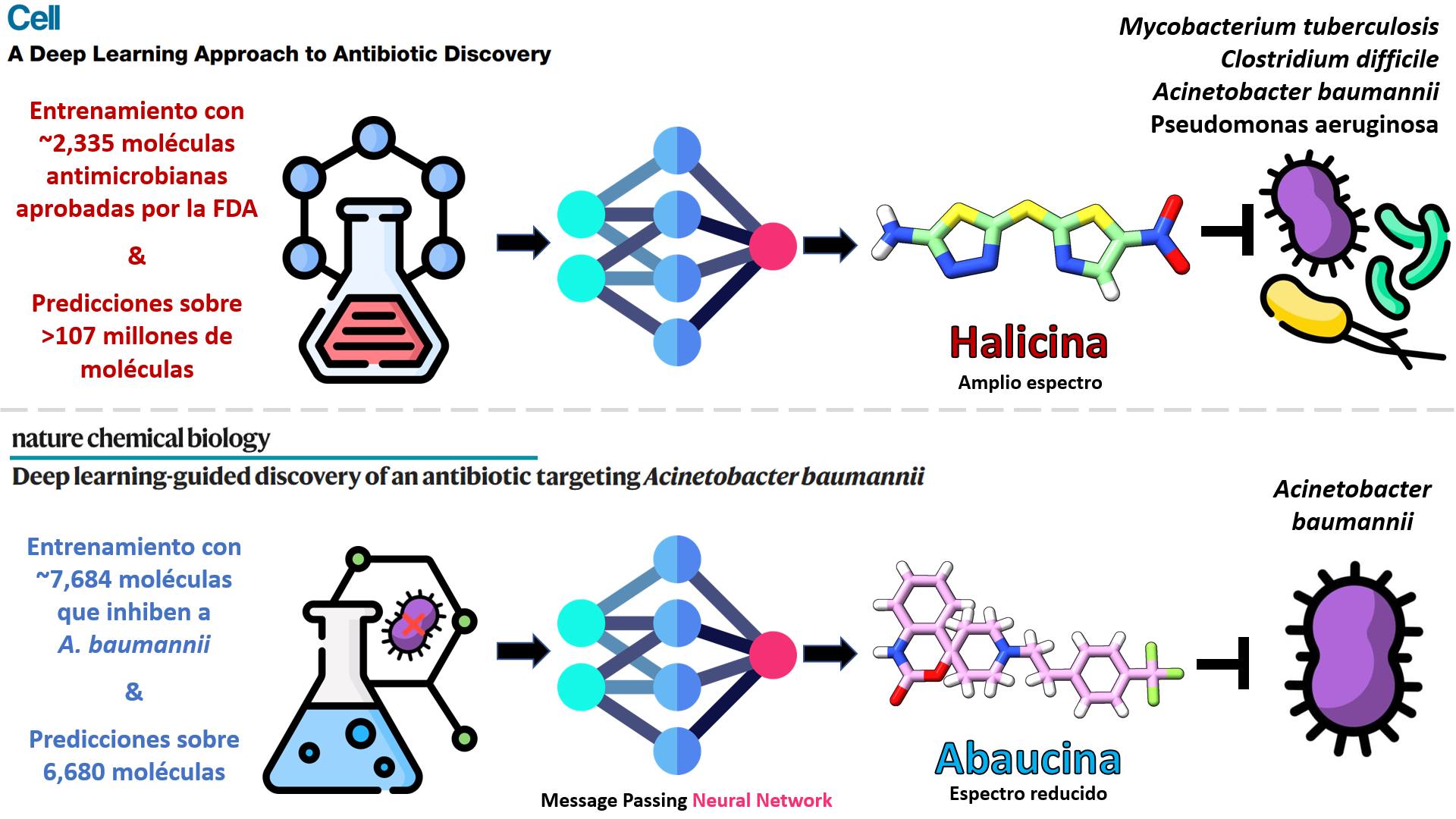Post 13: Using AI to discover new antibiotics 💊
Published:
Does artificial intelligence help discover new antibiotics?
Yes. In 2020, it was demonstrated for the first time that this is possible with the discovery of Halicin, a molecule used to treat diabetes that turned out to be a potent antibiotic against multiple multidrug-resistant pathogens.
Can we use AI to discover new antibiotics specific to a pathogen?
Yes. A couple of weeks ago, the group that discovered Halicin used the same strategy to identify specific antibiotics against Acinetobacter baumannii, an extremely dangerous pathogen. They found Abaucin, an antibiotic specific to A. baumannii that appears not to harm the microbiota associated with the intestines or the skin.
In both cases, a library of molecules is used to train a neural network that learns to relate chemical structure to antimicrobial capacity. This AI can generalize to new molecules and predict which ones could be good antibiotics. Furthermore, in both cases, it was demonstrated that the antibiotics have an effect in vivo in mice and are structurally novel antibiotics. Finding new antibiotics is important because most of the ones we use were discovered in the 1940s-1960s, and the biology of things has left us with no options to treat bacterial infections. Currently, an estimated ~5 million people die each year from this. And by 2050, it is estimated to be 10 million.

Refs:
